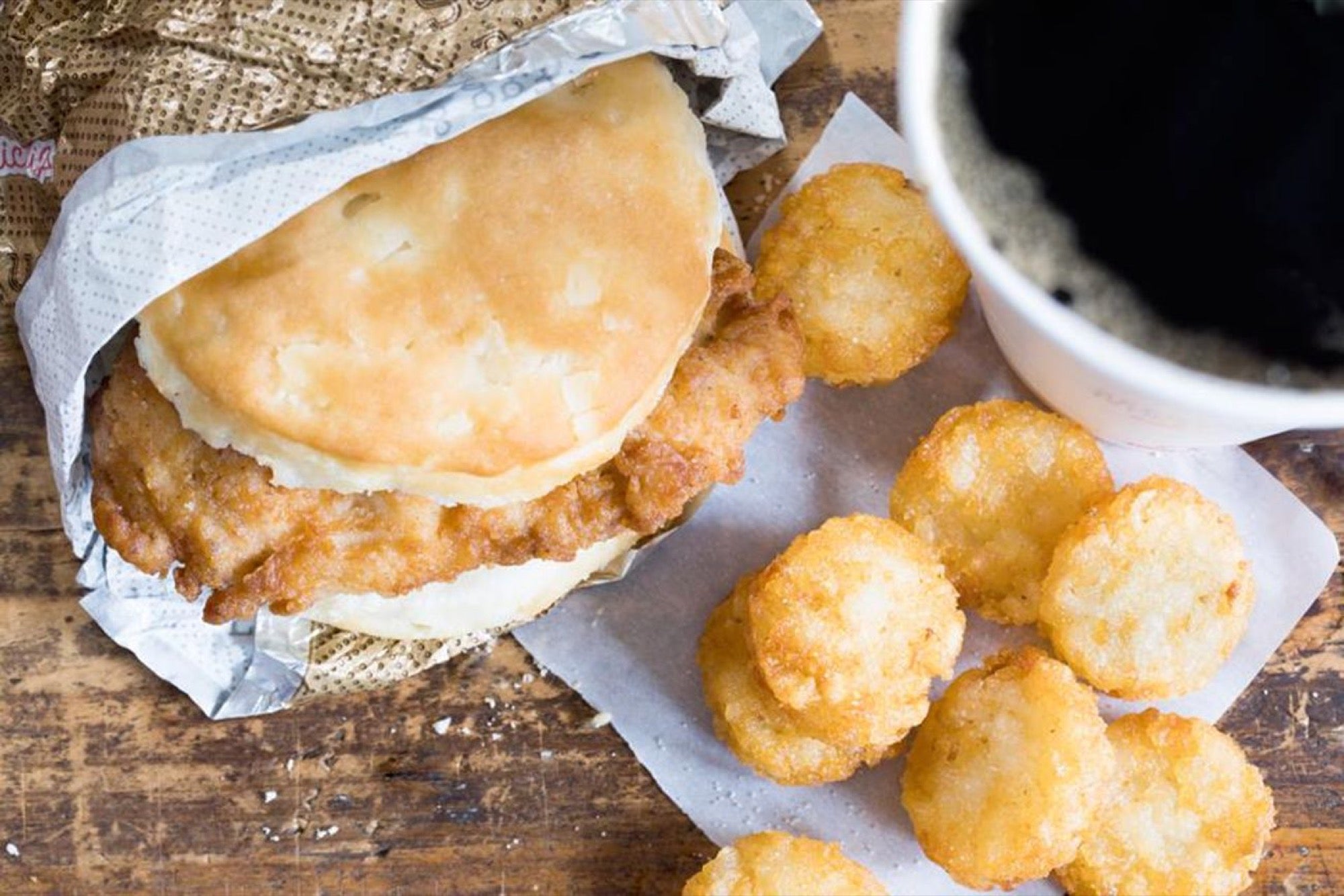Chick-fil-A Franchise Cost and What to Know Before Investing Find out everything you need to know about becoming a Chick-fil-A franchise owner. Get cost information, steps to ownership, and more.

Chick-fil-A is one of the most successful and influential fast-food chains in America's restaurant industry. Chick-fil-A units are the most-frequented fast food restaurant business in 38 out of 50 states, according to a study by Business Insider and Foursquare.
QSR Magazine also reported that the average Chick-fil-A makes about $4.4 million in sales per year — $1.7 million more than the next best franchise, Whataburger.
Chick-fil-A makes more per restaurant than McDonald's, Subway and Starbucks combined, even while being closed every Sunday.
What's the Cost of Opening a Chick-fil-A?
Chick-fil-A is looking to expand its reach further in the U.S., as well as in Puerto Rico and Canada. It is looking for a particular type of franchisee who is interested in a lifetime investment.
Before signing a franchise disclosure agreement, ensure you are financially ready for a long-term commitment. If you're prepared for a lifelong partnership, keep reading. This article will get into how much it costs to open a Chick-fil-A.
The initial franchise fee to open a Chick-fil-A is $10,000. Yes, you read that right. While that might seem like a meager cost, knowing where that number comes from is essential.
Chick-fil-A's franchise cost is low because the franchisor pays many startup costs and retains ownership of real estate, inventory and equipment. While this makes for a more accessible franchise business opportunity, the trick is getting in.
Requirements of a Chick-fil-A Franchisee
Even if you've got the $10,000 initial investment, it's a highly selective process to become a Chick-fil-A franchise owner. Take a look at their requirements below.
1. Tiered Application
Chick-fil-A has an extensive application process, starting with its tiered system.
- Tier 1: Simple application that will ask you for some basic information
- Tier 2: Information on previous work experience, leadership, financial health, and location preferences
- Tier 3: Selection process
It is important to note that Chick-fil-A is highly selective for a fast food franchise. Approximately 40,000 applications are submitted annually, but only around 100 prospective franchise operators are selected to move forward.
Related: Considering franchise ownership? Get started now and take this quiz to find your personalized list of franchises that match your lifestyle, interests, and budget.
2. Virtual and In-Person Interviews
If you get to the interview stage, get ready to be patient. Some interviewees reported that this process takes many months or even a year. Interviews may take place via phone, video, or in-person environments.
Chick-fil-A interviewers take their time with this process because they are trying to get a sense of who you are as a whole person. The quick-service restaurant remains true to the values instilled by its founder, S. Truett Cathy, and they want to ensure that everyone involved in the franchise is aligned.
- Serving the customer
- Serving the community
- To glorify God
- Work-life balance (hence being closed on Sundays)
- Commitment to DEI (Diversity, Equity, Inclusion)
- Ensuring equal access
- Valuing differences
- Creating a culture of belonging
- Intention, humility, positivity
Chick-fil-A wants a franchisee who is dedicated to their store and to furthering Chick-fil-A's mission. If this sounds like you, you will have a better chance of moving to step three.
The selection process is intense and Chick-fil-A reserves the right to stop your interview process at any time, which is why their selection rate remains so low.
3. Final Selection
If you are lucky enough to be selected as one of the 0.001% to move on, then Chick-fil-A will congratulate you and inform you of the next steps. You will be given more information on the rest of the process and financials and begin your Chick-fil-A multi-week training program.
If you think you've got what it takes to undergo the rigorous Chick-fil-A selection process, then keep reading for more need-to-knows about investing in Chick-fil-A.
What To Know Before Investing in Chick-fil-A
If you're looking for an excellent investment opportunity, Chick-fil-A seems like a no-brainer. But is it? You should know five facts before "buying" one of the chicken sandwich franchises.
Chick-fil-A wants more control than other fast food restaurants.
Chick-fil-A doesn't call the people who run its restaurants "franchisees." Instead, they're called "operators," which helps signify their role in the company.
Additionally, operators generally do not "own" the franchise or hold equity, and it's up to Chick-fil-A corporate to pick the location.
On top of that, the franchise agreement is specific to the individual who passed the application process — the business can't be sold or passed on to other family members.
So, if you intend to buy a franchise you can later sell, Chick-fil-A isn't for you.
Related: 5 Franchises You Can Buy for Less Than $18,000
Chick-fil-A pays (almost) every startup cost.
If you've started to wonder why anyone would consider purchasing a Chick-fil-A franchise, given that you can't actually own the franchise, this is a powerful reason.
Because Chick-fil-A wants to maintain ownership of the franchise, the company chooses the location, buys the real estate, constructs the restaurant, and purchases the equipment.
All you have to pay is a $10,000 franchise fee.
Contrast this with McDonald's, where you'll need at least $1 million to get a restaurant up and running, or Culver's, where you could need more than $4 million.
Chick-fil-A's impossibly low price tag helps make it accessible, even despite its irregular business model and low acceptance rates (more on that later). It's part of what makes it so successful.
Related: 24 Top-Ranked, Affordable Franchises You Can Buy for $25,000 or Less
Chick-fil-A isn't an investment.
Chick-fil-A is obvious on this front. If you're thinking of getting a Chick-fil-A restaurant solely because it's a good investment or because it could help you transition to something else down the road, then the company isn't interested in letting you run one of its restaurants.
Instead, according to their website:
"The Chick-fil-A franchise opportunity requires that the individual be free of any other active business ventures and operate the restaurant on a full-time, hands-on basis."
This philosophy might help Chick-fil-A reach its potential at each location, but it also means that you won't be able to work on other projects. Chick-fil-A insists on being your sole focus, not a passive income stream or part of your portfolio.
Related: Just How Much Does It Cost to Own a Fast-Food Franchise?
Chick-fil-A is expanding in 28 states.
Right now, Chick-fil-A has focused its growth opportunities in 28 states: Arizona, California (especially L.A. County, Orange County, San Diego County, and San Francisco Bay), Colorado, Connecticut, Florida (especially South East Florida), Georgia (especially Atlanta), Illinois, Iowa, Kansas, Maine, Maryland, Massachusetts, Michigan, Minnesota, Missouri, Nebraska, Nevada, New Hampshire, New Jersey, New York (especially Long Island and New York City), North Dakota, Oregon, Pennsylvania, Rhode Island, Texas, Utah, Washington, and Wisconsin. *This is accurate as of January 2023
This is a wide-ranging list, so opportunities are likely near you unless you live in Alaska or Hawaii. You can learn about potential locations by applying for or attending an operator event.
Related: 5 Affordable Franchises You Can Start for Less Than $10,000
Chick-fil-A is incredibly picky when choosing operators.
It simply isn't easy to get a Chick-fil-A franchise. About 0.003 percent of applicants get approved. For perspective, Harvard Business School accepted 11 percent of its applicants for the Class of 2019.
In other words, Harvard Business School accepts about 3,667 times more applicants yearly than Chick-fil-A.
With that in mind, consider your work history before applying. Do you have a strong background in business? Will your references give you strong recommendations? What will make you stand out from everyone else?
Related: 5 Low-Cost Franchises You Can Start for as Little as $4,000
Investing in Chick-fil-A
While the investment cost of opening a Chick-fil-A might be an incredibly affordable option, getting to that step is a challenging feat. Make sure you are ready to undergo the selection process and understand the non-traditional nature of "owning" a Chick-fil-A franchise.
Looking for more info on franchising? Explore Entrepreneur's Franchise Resources here.
















